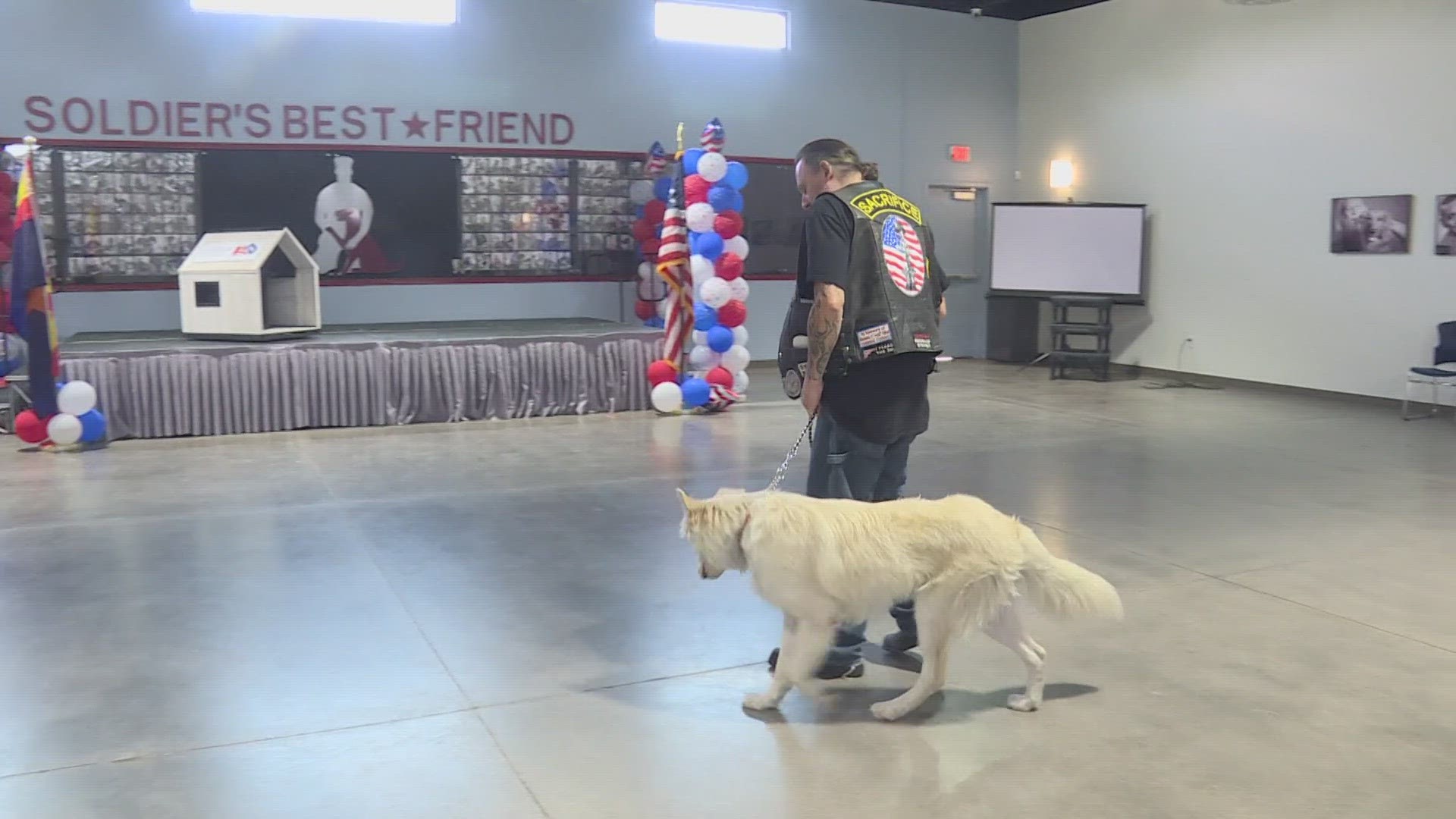PEORIA, Ariz. — Our brave men and women in the armed forces have all made sacrifices to serve – but for many that includes dealing with post-traumatic stress disorder, known as PTSD.
“Often times when a veteran has PTSD, they’ve become very recluse. They don’t like being out in crowds. They have hypervigilance," said Mik Milem, executive director of Soldier’s Best Friend. "So, they’re always on guard with what’s around them and anxiety comes up as a result of that. Many of them have nightmares or night terrors. Many of them have flashbacks."
Soldier’s Best Friend is a nonprofit organization that provides dogs and training at no cost to veterans.
"I spent two years as a long-range reconnaissance scout," said James Elliot who served in the U.S. Army. "I have night terrors and things like that."
"I was an US Army combat medic,” said Jeff Raebel “As a medic both military and civilian you see people at their worst possible point in their life. I found myself pretty reclused.”
The two army veterans served their country with honor in some of the most hostile situations. They are both getting help with their PTSD thanks to Soldier’s Best Friend.
“We train them together until that dog qualifies to be a service dog for that veteran,” said Milem. “It gives emotional support to the veteran. We actually train the dog to do specific tasks that help alleviate the symptoms of PTSD."
Elliott and his four-legged buddy Bishop, a white shepherd mix, are new to the program and so far, it's working.
"Who rescued who?" said Elliott asked with a laugh.
"Bishop came into my life. I have a whole new purpose," said Elliott. "It's great. Every day I wake up happy. I wake up and go and see him and take care of him."
Raebel and his dog Tilly, a grey poodle, are graduates of the program. Tilly has helped Raebel with night terrors and has gotten him more comfortable with leaving the house.
"She also alerts me when somebody is coming up behind me and I don't notice it," said Raebel. “She has also been trained to detect cortisol, a stress hormone. It’s given out for many medical reasons. One of them is increased anxiety.”
Raebal appreciates that as a graduate he is still welcomed to continue serving with the organization and helping out other veterans.
"What is important that we help them get back out into life again," said Milem.

